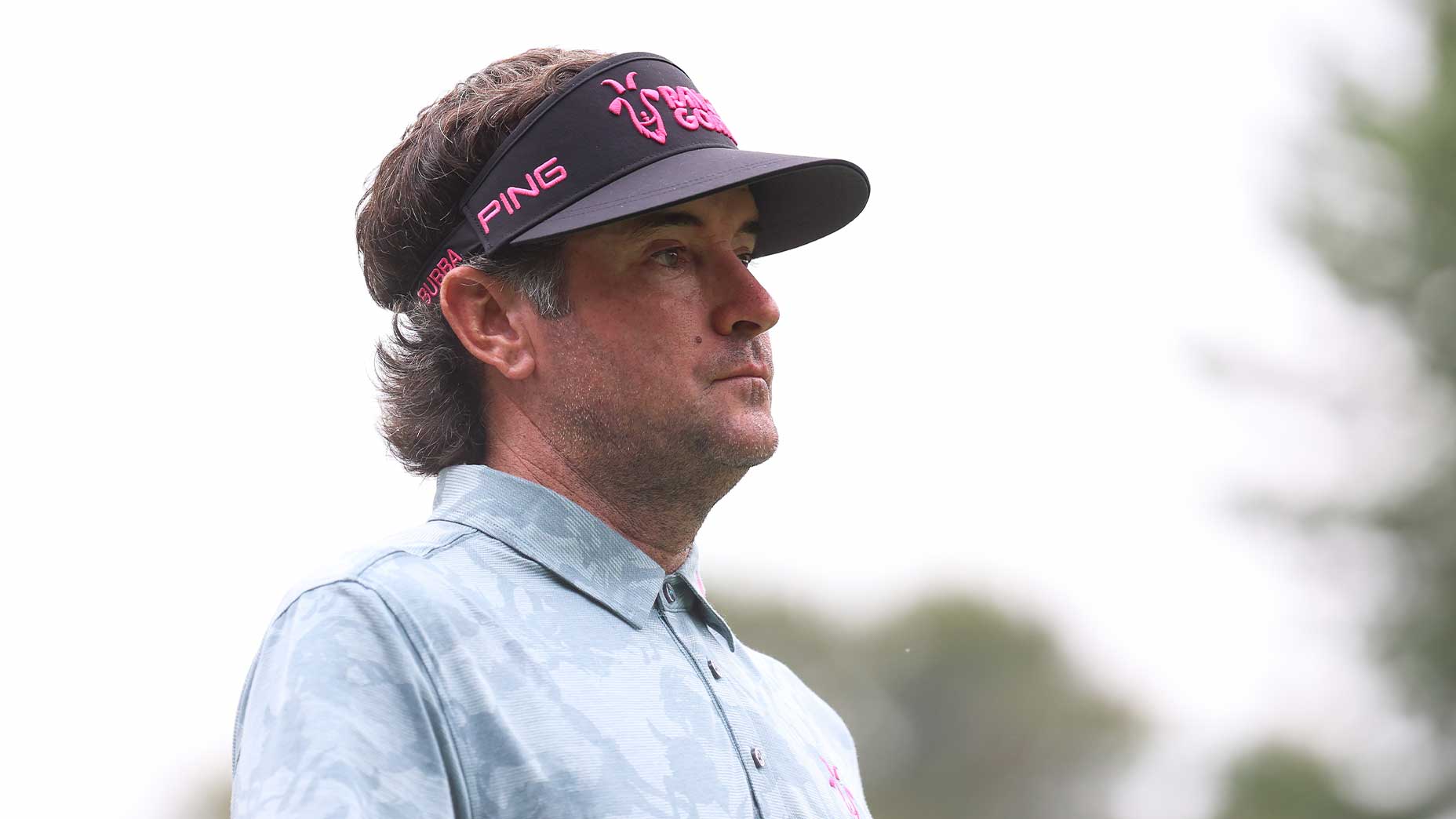LIV just ‘dropped’ a Masters champ. But what happens next?

Bubba Watson was among the golfers in the LIV ‘Drop Zone’ after Sunday.
Getty Images
A central irony burdens the LIV Golf competitive structure.
You can have a full array of aging stars, or you can have a fully operational competitive meritocracy — but you likely can’t have both.
A question emerges from this irony: Will the league cast off its stars in the name of competitive integrity, or will it cast off its competitive integrity in the name of its stars?
From a distance, the answer sounds obvious. Competitive meritocracy is central to everything we hold dear in major professional sports, and a few centuries of human biology tell us that physical skills diminish with age. The laws of nature demand a newer, younger cadre of stars eventually replace the old guard.
But the laws of economics say something different. There is a reason, after all, that LIV initially targeted its aging group of captains: They give the league a certain level of starpower, and starpower helps to sell tickets. Without names like Phil Mickelson and Jon Rahm competing each week, the league might not be able to attract sponsors, or TV partners, or fans, to pay attention to its product — and for a league with already-fledgling fan support, that’s a mighty risk.
All of this brings us to last week, at the LIV Golf Individual Championship in Chicago, where the league tucked a major update to its competitive structure into the margins of a press release. Starting now, the league said, everyone would be eligible for relegation under the league’s so-called “Drop Zone” — a rule that casts off the league’s bottom-five finishers at the end of every year. Including the captains.
At first, the news arrived to mild shock. In the past, the league had erred on the side of stars, protecting each of its team captains (the centerpieces of its financially-crucial “franchise model”) from relegation. But now the league seemed to be reversing course, and that portended significant downstream concerns. Would LIV seriously kick off Phil Mickelson, the de-facto founder of the league, if he finished in the league’s bottom five after a year of bad play? What about if Jon Rahm or Bryson DeChambeau, the league’s competitive future, suffered a 12-month tailspin?
As the questions rolled in, the league quickly announced a subsequent update. Captains could be relegated, but they could also be kept on the roster, so long as the team’s leadership made a competitive business case for keeping their captain in the league.
Given a competitive business case is the entire reason for the franchise model in the first place, the clarification read more like a reversal. The captains were safe. Their inclusion in the Drop Zone gave the league’s franchises little more than a plausible reason to distance themselves from a toxic asset, if one of its captains ever reached that point. But most franchises are staffed by friends and longtime business associates of their captains, which would seem to make it unlikely a captain will ever be removed from a team against his will.
For better or worse, that theory will soon be put to the test. On Sunday evening, LIV confirmed its “Drop Zone” finishers from 2024, and that group included one notable name: Bubba Watson, a two-time Masters champion and team captain for the RangeGoats.
Watson was by far the biggest name amongst the relegated group, joining brothers Scott and Kieran Vincent, Kalle Samooja, and Branden Grace in the Drop Zone. With his “relegation,” Watson became the first team captain to be included in the Drop Zone, but it remains to be seen if he will actually find himself among the players cast off after the completion of the 2024 season this week in Dallas.
Given the league’s language, Watson’s status as a two-time major champ, and the reported $50 million signing bonus it gave Watson back in 2022, the “business case” for keeping him on the RangeGoats roster seems increasingly strong. Would LIV consider making an example out of Watson in the name of competitive integrity? Possibly. But it seems far more likely that Watson will be with the RangeGoats again when the 2025 season opens in Riyadh next February.
For now, that’s probably best for the league, but maybe not for long. As the 2024 season comes to a close, the average age of a LIV captain is 40.07 years old, well older than the typical competitive prime in golf. As the league’s older stars continue to fade, will it be capable of moving on from those whose games fall the furthest, captainship be damned? Or will it find itself gently waiting for its captains to come to that realization on their own, even at the expense of the on-course product?
The day is coming when LIV will have to start making hard decisions. Maybe even sooner than we realized.
Related
5 Things I Never Play Golf Without: David Dusek
Our 11-handicap equipment writer always brings his favorite divot repair tool, a portable speaker and some high-tech gear to the course.As long as the weather i
Donald Trump’s golf course wrecked by pro-Palestine protesters
Pro-Palestinian protesters have vandalized parts of U.S. President Donald Trump's golf course in Scotland in response to his proposal for the reconstruction of
Man holding Palestinian flag scales London’s Big Ben hours after…
CNN — Emergency services were called to London’s Palace of Westminster on Saturday a
EPD: Drunk driver parked car on golf course
EVANSVILLE, Ind. (WFIE) - Evansville police say they arrested a man after finding him drunk in his car that was parked on a golf course.Officers say they were c












